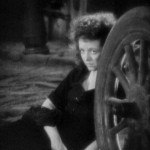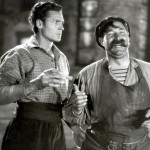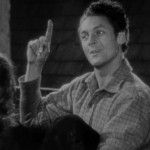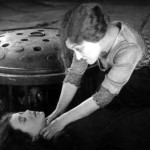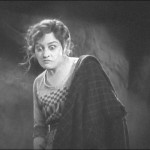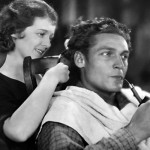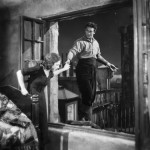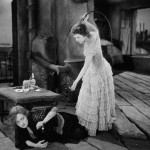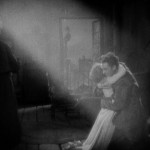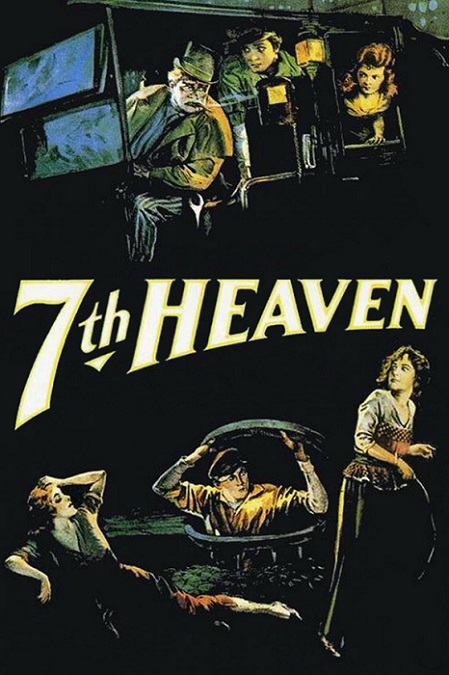

7th Heaven – 1927 / 1928
This was a sweet movie. But more than that, it was a story that touched the heart. This was one of the first movies ever nominated for Best Picture, running against the winner Wings and a gangster film called The Racket. I can easily see why this film was nominated for Best Picture. It had everything a good and well-told story ought to have. It had a strong and handsome hero, a sweet and beautiful heroine, an evil villain, romance, and a triumph of the human spirit. In several ways, this nominee was a better film than Wings.
I mean, I understand why Wings won: The battle sequences were much more exciting and well done, and it had Clara Bow. But I felt that 7th Heaven had a deeper emotional content. The romance was so much more believable and well-developed. First of all we have Janet Gaynor as Diane, a woman who is regularly beat and abused by her absinth-addicted sister, Nana, played by Gladys Brockwell. When Nana attempts to murder her in the gutter, she is stopped by Chico, played by Charles Farrell. Farrell and Gaynor were actually in over a dozen movies together and they had a good on-screen chemistry. Farrell was a very attractive man, even by today’s standards. And while they went out of their way to make Gaynor appear plain and homely, they could not hide her amazing smile. Her face lit up like a light-bulb every time she turned it on. She was simply beautiful.
This life-saving intervention marks the beginning of the film’s romance and it was wonderfully portrayed. It was built up gradually which made it all the more believable and sweet. When the two finally declared their love for each other it was so beautifully done that it made me feel good just to be a witness to their happiness. Of course, World War I came in and parted the two lovers for years. In the end, Chico is almost killed, but Diane never loses faith, believing that he will return to her.
One of the great things they did was that as Chico is leaving to join the war, he tells Diane that every morning at 11:00 he will come to her and they will be together. Then every day at the same time they think of each other and in that way they are together. It was a sweet notion and made me smile.
Brockwell played a great villain. She was scary enough that whenever she was on the screen, she made me cringe and feel for Diane as she endured the abuse. And eventually, it is her love for Chico that gives Diane the confidence to fight back and drive Nana away for good. That was a very satisfying scene.
The battle sequences for the war were fairly well done, except for one thing which I felt was a little lacking: the use of scale models. At one point, there is a long line of French taxi-cabs that are commandeered to carry French soldiers to the front lines. The camera then gives several us a wide angle shots as they are driving across a bridge while shells explode around them. The cabs very obviously look like they are matchbox cars on a fixed track. They make the entire shot look very fake.
But I must admit, the battle sequence with the flame-throwers was pretty cool. And I liked the fact that, even though most of the characters came home alive, none of them came home unscarred. Chico’s best friend Gobin, played by David Butler, lost an arm, and Chico himself was blinded, possibly for the rest of his life. Incidentally, I really liked the character of Gobin. Butler did a great job and was a pleasure to watch.
In the end, love proved stronger than the horrors of the war, and even though Chico lost his sight, Diane greeted his unexpected return with bliss and unfailing love. It was a feel-good ending, which is never a bad thing. Ah, sweet romance!
